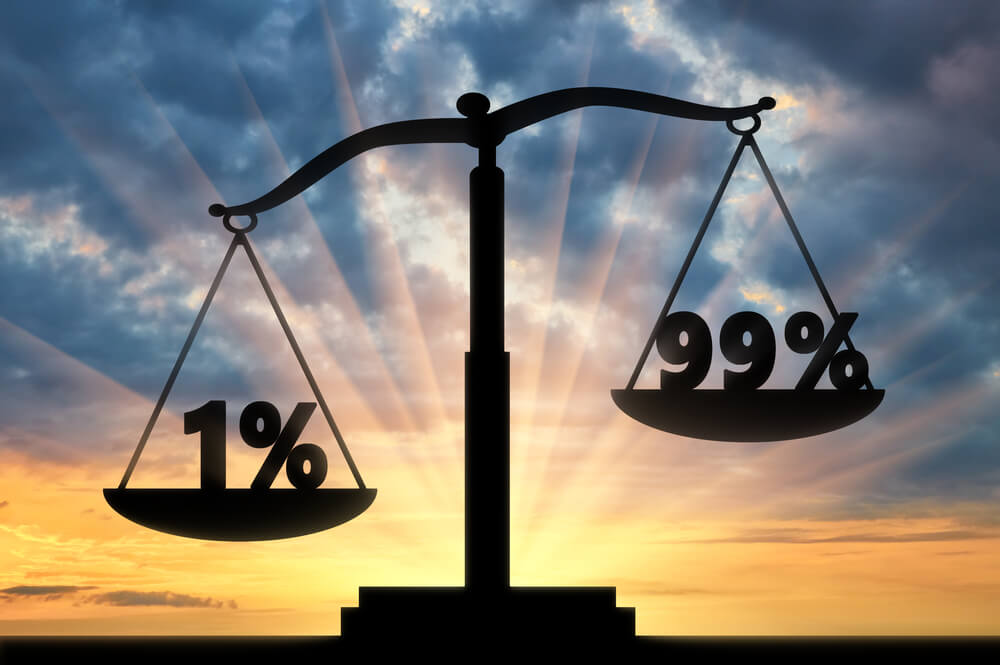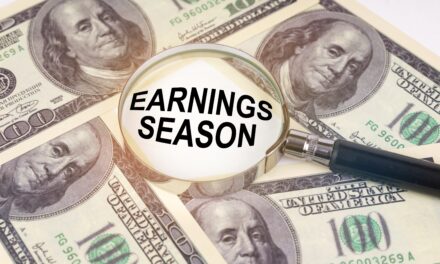A new study on the tax burden ratio of the super-rich compared with the working class opens with a surprising tidbit: For the first time in history, the richest billionaires paid a lower effective tax rate than America’s working class during 2018.
University of California at Berkeley economists Emmanuel Saez and Gabriel Zucman released their study, “The Triumph of Injustice,” and its analysis shows Americans’ effective tax rates since the 1960s. It says that in 2018, the average effective tax rate paid by the richest 400 families was 23%, a full point and then some below the 24.2% rate paid by the bottom half of U.S. households.
For comparison’s sake, in 1980, the 400 richest U.S. families paid an effective tax rate of 47% and in 1960, it was 56%. The study says that the effective tax rate paid by the bottom 50% has changed little over time.
Saez’s and Zucman’s analysis does one thing different from other published tax-burden estimates by including the total taxes Americans pay — not just federal income taxes but also corporate taxes and state and local taxes. It also includes the burden of $250 billion of what the economists call “indirect taxes,” like licenses for a car and businesses.
The study also was the subject of a New York Times piece this week that has been getting a lot of traction on social media. It details the breakdown of the tax burden of the top 1%, the top 0.1% and the 400 richest households, and how that has gone down drastically over time.
Click here to see the graph. As you scroll down, it shows how the effective tax burden for the richest Americans has consistently gone down since 1950.
Saez and Zucman wrote that the focus on the top 400 families is important because those households control a disproportionate amount of the country’s wealth. In fact, the top 400 families have more money and assets than the bottom 60% of households, while the top 0.1% have as much wealth as the bottom 80% of Americans, a staggering number.
The top 400 families are a natural reference point, the study says, because the IRS publishes their information as a group, and sources like Forbes also track their fortunes so there is a lot of information about them available.
The study says that the relatively small tax burden paid by the ultra-wealthy is the product of decades of decisions made by U.S. lawmakers, who have repeatedly cut the top income tax rate and cut taxes on capital gains and estates. They’ve also failed to steer adequate money to IRS enforcement efforts while allowing big companies to stash their profits in low-tax countries.
The tipping point, the study says, was the Tax Cuts and Jobs Act, passed by the Republican-controlled Congress and White House in 2017, which has been a huge windfall for the ultra-wealthy by lowering the top income tax bracket and slashing the corporate tax rate from 35% to 21%.
The pair’s analysis says the top 0.1% paid 2.5% less in taxes, and the benefits of the bill that were promised, like higher growth rates and business investment, have failed to materialize.
There are of course some economists who disagree with at least some of the findings, and some have come up with estimates that show a smaller disparity between the rich and the working class. Harvard economics professor Jason Furman says the pair didn’t include things like the earned-income tax credit in their analysis.
“The best estimates indicate that the tax system is progressive — with the rich paying a higher tax rate than everyone else,” Furman said.
“If you start counting some transfers as negative taxes, it is not clear where to stop,” they told the Washington Post in an email. “Do you treat the EITC as a negative tax? veterans’ benefits? medicaid? defense spending? There’s no clear line and the results become arbitrary.”
“The rich definitely pay less in taxes than they did in the past and less than they should,” Furman said.
Editor’s note: Polls show about 70% of Americans are in favor of raising taxes on the wealthy. What do you think about this study’s findings? Share your thoughts below.




